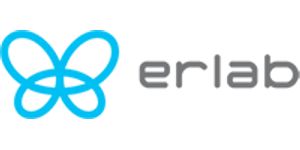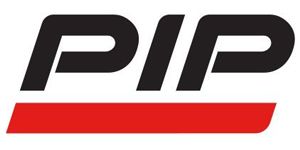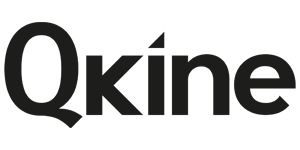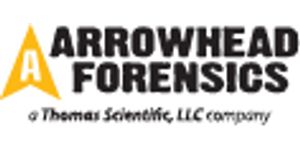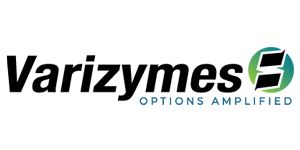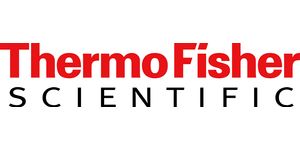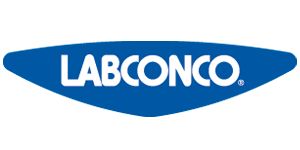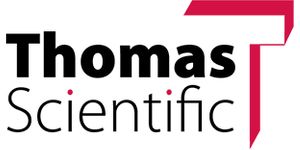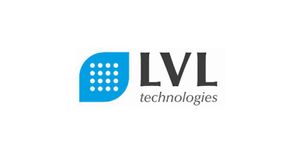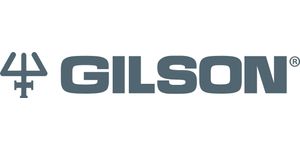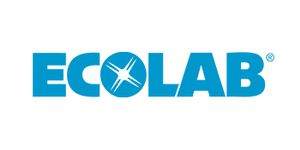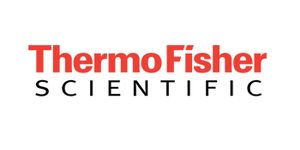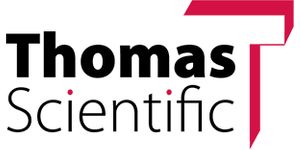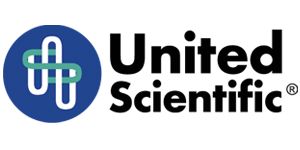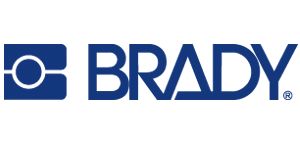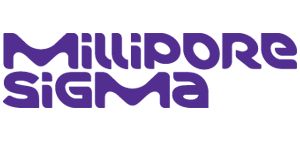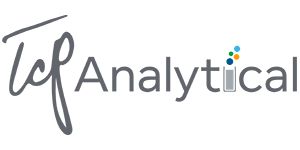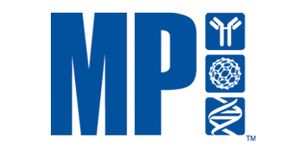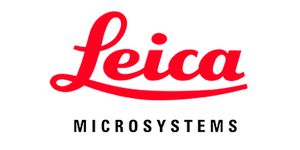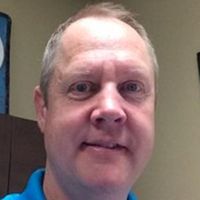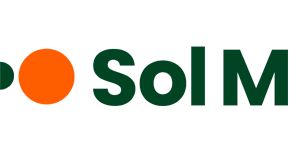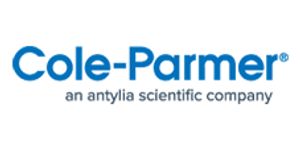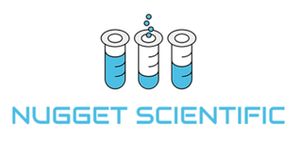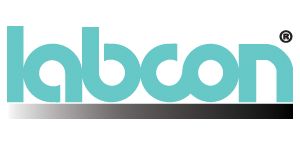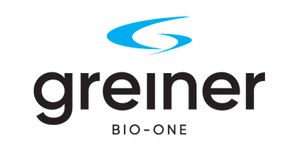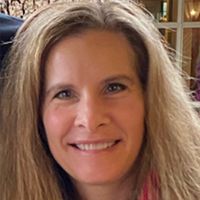Step 1: Set up your profile so you can register for Talks.
Step 2: Click Add Talk to Agenda next to each Talk you want to attend.
Step 3: Enter below or scroll down to add more Thomas Experts Series Talks.
-
MAR 7, 2025 3:30 PM ET
Streamline Your Projects: Why Eldon James is Your Go-To Toolbox
In the vast world of medical and industrial applications, having the right tools at your disposal can make all the difference. This Talk will explore the unique offerings of Eldon James. Discover how their custom solutions can enhance your projects and meet your specific needs. Let’s dive into the world of tubing, connectors and custom tube sets and see what makes Eldon James the go-to choice.
Garret FraseBio: Garret Frase is an energetic professional with over a decade of experience and a proven track record of success in both sales and leadership roles. His genuine passion for connecting with clients ushers a natural leadership ability, motivating teams to collaborate effectively and achieve shared goals. He's not just a salesperson; he's a strategic partner who understands the complexities of the market and how to leverage brand identity to its fullest potential.BIOGRAPHY -
FEB 21, 2025 3:30 PM ET
Realizing the Power of Air Filtration
Simplifying your path to decarbonization while increasing safety with the power of filtration.
-
DEC 6, 2024 3:30 PM ET
Consolidating Hand Protection for the Growing CE Market
Grippaz® gloves are designed to meet the evolving safety requirements of multiple controlled environments with a specialized nitrile compound that is ESD Safe, chemical resistant, durable, and has an enhanced grip for precision tasks. By consolidating glove types, organizations can simplify stock management and reduce inventory costs while maintaining compliance with safety standards across various applications. Grippaz® gloves support the need for reliable, versatile protection in industries where chemical, biological, and electrostatic safety are paramount.
Jennifer BarnesBio: Jennifer is a results-driven sales professional with 19 years of experience in PPE sales with a strong focus on Controlled and Critical Environments. She has an enthusiastic passion for finding the right products and solutions for her customers and end users. Throughout her career she has earned the trust of many national and international companies due to her in-depth knowledge and attention to details. Jennifer studied at the University of Toledo, earning a BA in Marketing and Human Resources Management.Danielle WoodruffBio: Danielle enjoys working alongside innovaters from new and emerging industries. Whether it's researching safety solutions for ENMs or terpene-ozone interactions, she is always on the lookout for new safety hazards that inevitably present themselves at the cutting-edge of science. Danielle received her BA in New Media from the University of Maine with further certification from Northwestern and the University of Illinois at Urbana-Champaign and has been published in the Journal of Physical Chemistry Letters. She now manages the marketing of Controlled Environment Safety at PIP®. -
NOV 1, 2024 3:30 PM ET
Raising the Standard in Bioactive Protein Manufacturing and Innovation
Understanding the impact of high-quality animal-origin free recombinant growth factors on stem cell culture.
Rob NixonBio: Rob has extensive knowledge and experience, managing successful commercial teams in life science organisations, across a spectrum of start-ups to public listed companies including Merck Group (MilliporeSigma) and GE Healthcare Life Sciences. Rob has joined Qkine as part of the executive team to execute and deliver the commercial strategy to scale the business.Dr. Luana FerraraBio: Luana has a Master's degree in Functional Genomics and a PhD in Chemistry. With over 10 years of research experience in molecular biology, protein biochemistry, and structural biology, she brings a wealth of expertise to her role. As Head of R&D and Collaboration at Qkine, Luana is instrumental in fostering partnerships that drive innovation and enhance the company's impact in the biotechnology field. -
OCTOBER 11, 2024 3:30 PM ET
Arrowhead Forensics: From the Scene to the Forensic Laboratories
An overview of the Arrowhead Forensics products that are used from the crime scene to the Forensic Laboratories such as Toxicology/Serology and DNA Labs.
Brad BrownBio: Brad Brown is part of an executive team at Arrowhead Forensics with more than 75 years of experience working with law enforcement customers. Arrowhead has been serving the crime scene and laboratory markets for more than 20 years specializing in evidence collection and processing from the scene to the lab.Dr. Carl HillikerBio: Carl is a healthcare technology executive with wide-ranging leadership across sales and distribution, R&D, production, and field services; delivering innovative diagnostic solutions to OEM and end-users to serve hospital, medical center, and laboratory markets. 20+ years of global experience building teams to drive business and product development from concept to commercialization. Keenly in-tune with workflow and production processes amid strict regulatory requirements which vary throughout countries. -
OCT 4, 2024 3:30 PM ET
Certified, Sustainable and Safe Ductless Air Filtration Solutions
Creating a lab with Ductless Air Filtration Solutions that provides certified, sustainable, safety wherever your science takes you.
-
SEPT 20, 2024 3:30 PM ET
You Bet Your Assay-How Confident Are You With Your Process Controls?
The FDA submitted its final rule regarding laboratory diagnostic tests (LDTs) on May 6, 2024. While it allows for 4 years for compliance and it is currently being disputed by various associations that deal directly in LDTs, how will this affect you? We will discuss the basics of the ruling, how you can address the upcoming changes, and how Varizymes can help you with one of the basic forms of compliance that comes with increased scrutiny about how your assays are built, validated, and verified to protect Point of Care end users.
Jenny MailandBio: With over 2 decades of experience in animal husbandry, food safety, nutraceutical, pre-clinical, and pharmaceutical industries I am pleased to share my experience with FDA regulations and how it impacts daily molecular testing and recordkeeping.Bradley BellowsBio: Marketing and visual communication have been my passion in a career that has spanned over two decades. My professional goal is to facilitate advertising and public relations strategies geared towards achieving my company's objectives. -
SEPT 13, 2024 3:30 PM ET
Maximize Pipette Recycling - Exploring pipette tip recycling in the lab
Explore sustainable practices in the laboratory by discussing the benefits and best practices associated with pipette tip recycling, aiming to reduce environmental impact and promote responsible laboratory waste management.
Anshula SharmaBio: Anshula is a seasoned professional with extensive hands-on experience in the field. She has been with Thermo Fisher Scientific for 13 years and now serves as Market Development Manager for Liquid Handling product lines. In this role, she is responsible for marketing initiatives and commercial support to find solutions to our customer needs. -
AUGUST 23, 2024 3:30 PM ET
Advancing Biosafety Cabinet Technology: Innovative Solutions for Enhanced Functionality
Join us to discuss the latest advancements in biosafety cabinet technology, enhancing safety, boosting efficiency, and improving user comfort.
David WaseschaBio: Director of Biosafety Products, David leads Labconco's applications and product management groups for life science enclosures. For several years David has been involved in the design, testing, and use of laminar flow products including Class II biosafety cabinets. He is a member of American Biological Safety Association International (ABSA), the Controlled Environment Testing Association (CETA), and is involved with the NSF/ANSI Standard 49 Joint Committee on Biosafety Cabinetry. -
AUGUST 16, 2024 3:30 PM ET
Education & Beyond-Stockroom Management 101: Best Practices / Do's and Dont's
Properly managing a stockroom is vital to the success of the research on your campus. The ever changing nature of technology coupled with volatile supply chains have impacted how stockrooms operate. This webinar will highlight the major changes in stockroom management and best practices from a survey of multiple stockrooms at major research institutions.
Andrew DaressBio: Andrew Darress is Thomas Scientific's Director of Education and he manages the university market for Thomas Scientific across the US. Andrew is finishing up his Master's in Management from Harvard Extension School, and he holds a Bachelor's of Science in Chemical and Biological Engineering from the University of Colorado-Boulder. In his 4 years with Thomas Scientific, Andrew has helped to support numerous stockrooms across the nation helping several of them stay open during the COVID-19 pandemic.BIOGRAPHY -
JULY 25, 2024 10:00 AM ET
Consolidated One-Stop Shopping Internationally with Thomas!
For over 40 years Thomas Scientific's dedicated international export experts have made global sourcing easy to support all your scientific needs. Whether based internationally or a company with a global footprint, Thomas Scientific provides individualized customer service, innovative scientific equipment, and a comprehensive portfolio offering a wide selection of product listings at a great price.
-
JULY 19, 2024 3:30 PM ET
Reduce Risks & Achieve Your Goals Using 2D Coded Sample Storage Consumables
Many users in the area of sample storage work with the familiar cryotubes in 81 or 100 format. As a rule, the existing volume of the tubes is not used optimally. This circumstance leads to a waste of storage capacity. The SBS sample archiving system from LVL solves this problem and has numerous features that help to ensure not only the integrity of the sample, but also the transfer of information that is essential for the clear assignment between container and sample. We all agree that its time for greenthinking instead of greenwashing and based on that LVLs new 100% recycled rack series will be introduced. In addition to shared experiences and physical background, an innovative laser marking system is being introduced that ensures long-lasting and robust marking of the tubes, while saving working hours of routine work that instead can be invested in productive activities.
Waldemar JanzenBio: Waldemar Janzen is the global product manager at LVL technologies. He accomplished a bachelor's degree in mechanical engineering with the specialization on designing and developing as well as a master's degree in technology and innovation management. Having built over 585 injection moulds during 13 years working in the automotive industry and now over 4 years in the Life Science provides him the relevant knowledge regarding plastics in respect to design, physical properties and applications. In addition, as a guiding part of LVLs' device development team he was in charge for the development of the Tube Laser Marker. -
JUNE 21, 2024 3:30 PM ET
Increase Efficiency with Automated Magbead Extraction
Automated Magbead Extraction accelerates your DNA Library Preparation. Gilson Pipetmax uses robotic scripts developed using PIPETMAX for NGS.
Kelly WhiteBio: Kelly White is an Application Specialist with Gilson INC. She provides support and protocol development to their Pipetmax customers for their specific assays. She has 16 years' experience in pipetting and small pipetting robots. -
JUNE 7, 2024 3:30 PM ET
Innovative Technologies for Creating 3D Cellular Models
Over the past decade, there has been increasing interest in more predictive model systems for disease and development. 3D cell culture models can serve both purposes, but can present challenges in consistency. In this session, you will learn about technologies from Corning to ensure consistency in 3D models.
Catherine SilerBio: Catherine Siler is a Field Application Scientist for Corning Life Sciences, and manages the east coast, central, and Canadian team. Catherine earned her Ph.D. in biology at Johns Hopkins University, where she focused on neural development and discovered a passion for science communication. During her ten years at Corning, she gained commercial experience as part of the Bioprocess Specialist team, providing custom closed system vessels and media to customers. As part of the FAS team, Catherine educates and provides in-lab support to customers using Corning products for bioprocessing applications, including cell and gene therapy scale-up processes, as well as 3D cell culture techniques. -
MAY 17, 2024 3:30 PM ET
PCR for 35% Less-Now!
Introducing the full Thomas Brand PCR Workflow, from highly technical equipment to consumables and chemicals for less with delivery now.
Vanessa VanceBio: Vanessa has 10 years in the scientific distribution industry. Specializing in optimizing private label for customer solutions.Lena PedersonBio: Lena is currently a Field Sales Account Manager in the Pacific Northwest for Thomas Scientific. She has 20 years in the science/distribution arena. -
MAY 3, 2024 3:30 PM ET
Certified, Sustainable and Safe Ductless Air Filtration Solutions.
Creating a lab with Ductless Air Filtration Solutions that provides certified, sustainable, safety wherever your science takes you.
Jesse CoiroBio: Jesse Coiro leads Erlab as Director of NA Operations, overseeing the company's strategic vision, product development, and operations. He has over 25 years of experience in the biopharma, pharmaceutical, medical device, and educational markets providing air filtration solutions to increase protection of personnel, facilities, and the environment. -
APRIL 26, 2024 3:30 PM ET
The Impact of Annex 1 and Your Contamination Control Strategy
This presentation will cover the purpose of the Annex 1 update, scope, principles, regulatory expectations, what's next and solutions to help ensure readiness.
Donald SingerBio: Don Singer is a Fellow in the American Society for Quality and formerly a GSK Senior Fellow. Don has been Chair of the USP General Chapters - Microbiology Committee of Experts and a member since 2000. A Certified GMP Professional, Certified Specialist Microbiologist and is a member of the European Pharmacopeia Group 1 Microbiology Committee. Don is an adjunct professor in the UMBC Biopharmaceutical Quality graduate program. Don's career spans over 40 years of research and quality control. -
APRIL 12, 2024 3:30 PM ET
Transitioning Laboratory Equipment from Cell and Gene Therapy Research and Development to GMP Compliance
As you transition your discovery through research and development to commercial production in a GMP setting, your goal is to speed that process by minimizing variables. Laboratory equipment plays a key role in that process and should offer proven solutions. In this talk, you will learn: What is GMP work and how does it differs from basic research and development; How can laboratory equipment ease this transition; What are the five criteria to evaluate in selecting lab equipment for transitioning to GMP compliance.
Mary Kay BatesBio: Mary Kay Bates is a Senior Global Cell Culture Scientist with Thermo Fisher Scientific, where she provides cell culture expertise to colleagues and customers. Her knowledge is based on twenty years of experience in academic and industrial cell and molecular biology labs focusing on cancer and gene therapy. Mary Kay holds an M.S. in microbiology from the University of Wisconsin-Madison and has authored numerous publications. -
MARCH 22, 2024 3:30 PM ET
Supporting Full Workflows for Cell & Gene Therapies
Cellular and gene-based therapeutic approaches are the future of medicine for many conditions. As the CGT field expands and deepens, the need for consistent and reliable partners becomes critical. We will review how Thomas Scientific can assist you in your efforts.
Mike MoellerBio: Michael L. Moeller, PhD, has worked in the CGT space for 25 years, including roles as the Chief Scientific Officer of a Biotech startup, as the Scientific Director of the CGT unit of a CRO, and multiple roles in business development at life science companies. He has advanced one of his cellular therapies into 2 Phase I Clinical Trials and is currently focused on becoming a supportive presence for the larger CGT field. -
MARCH 1, 2024 3:30 PM ET
Navigating Cannabis Supply Chain Challenges from Seed to Sale
Thomas Scientific's Cannabis Specialists demonstrates how to leverage vendor consolidation ultimately saving you time & money in today's supply chain challenged climate.
Shawn WilliamsBio: With 20+ years of experience working in the lab & distribution industry, Shawn prides herself on having a strong desire to serve customers by going the extra mile. She has excellent networking capabilities and customer relationship development, and is strong in problem solving and solution focused.Trevor VanTimmerenBio: With a degree in Sports & Health Sciences, Trevor spent time as a health coach and fitness trainer while earning his MBA. He is focused on product formulation, medicinal and recreational, using cannabinoids, terpenes and other plant-based compounds/molecules. Trevor is great at connecting the right people while figuring out the perfect solution. -
FEBRUARY 9, 2024 3:30 PM ET
Utilizing Cooperative Contracts for Public Sector Purchasing
How public sector—state, local and educational (SLED) customers can utilize cooperative contracts to improve efficiency in the procurement process.
Lewis McMillanBio: Lewis has over 40 years experience in distribution with every major distributor and SLED market segment. -
JANUARY 19, 2024 3:30 PM ET
Understanding Your Needs to Design and Build a Custom Laboratory in 30 Days!
Our experienced team of furniture specialists, lab designers, and project managers at Laboratory builders are here to lead you through the completion of your fast track lab renovation, or new lab project. With clear and easy communication, in depth planning, extensive inventory of top-quality lab furniture, we are here to act as a full turnkey solution to help design and build your next lab!
Mike BuchlerBio: Mike Buchler is an accomplished Sr. Construction Project Manager who specializes in the design and build of new laboratories. Mike has over 13 years of project management experience; 9 of those years designing laboratories for Thomas Scientific customers.Oscar JacksonBio: Oscar Jackson worked with Corning Life Sciences for 30+ years and has been with Thomas Scientific for 15 years in General Lab Sales. -
DECEMBER 14, 2023 2:00 PM ET
Bench Strength: Pro Tips to Select the Right Products for Your Lab
Increase your knowledge of the attributes to look for when choosing laboratory supplies (and stretch your budget in the process).
Jim DuffeyBio: Throughout a career working at and with leading laboratory product manufacturers and distributors, Jim has developed a strong knowledge of history and trends in the industry. With an MBA from University of Rochester's Simon Business School and senior roles at several companies, he has perspective and insight about products that represent great value in laboratories.John GuraBio: John has been involved in the Laboratory Supply industry for 20+ years. He has worked with all of the major distributors in the industry, consulting on new product ideas and presenting them to prospective distributors to provide to laboratories in the US market. Working closely with field sales reps and subject matter experts, he stays current with trends and product applications as it relates to specifying and qualifying products that adhere to the lab's SOP guidelines. -
DECEMBER 07, 2023 2:00 PM ET
Error Reduction Through Lab Labeling-Trends to Improve Productivity and Reduce Costs in Your Lab
We're witnessing advances in the way we diagnose, treat, and cure disease. Along with these advances come a rising tide of samples. Scientists in all kinds of labs are now facing the possibility and even the likelihood that their existing methods of identifying, tracking, and reporting on those samples may be insufficient to the task ahead. We will explore the rising tide of sample loss and the trends you can take to ensure best practices to limit sample disruptions.
Joseph YsasiBio: Joe Ysasi has been with Brady Corporation for over three years working closely with customers requiring unique identification solutions in numerous types of lab operations. He has also spent nearly two decades in industry providing complex sales solutions to large global organizations. He holds a BBA in Marketing & Management at Grand Valley State University as well as an MBA in International Business from the University of Hawai'i at Manoa. In his spare time he enjoys spending time with family, playing sports, as well as continuing to learn and study several languages.Brittney WaclawskiBio: Brittney Waclawski has been a member of the Channel Management Team at Brady Corporation for two years as the healthcare industry Channel Manager. Her primary task is driving sales and profitability growth through assigned distribution partners while collaborating with internal and external partners to deploy strategic initiatives to ensure results are achieved. When Brittney is away from work she is enjoying motherhood as a first time mom to her 5 month old son, James, with her husband Steve. -
NOVEMBER 16, 2023 2:00 PM ET
A Review of the Methods and Equipment Required for Performing Microbial Testing of Liquids
During this presentation we will look at the methods for performing microbial testing of liquids. We will review the equipment and discuss some troubleshooting of the more common issues when using the equipment.
Michel van MusschenbroekBio: Michel van Musschenbroek has been with MilliporeSigma over 30 years supporting Pharmaceutical, Food & Beverage, and the Environmental markets. He currently resides in the Field Marketing and Technical Team supporting North America. -
NOVEMBER 09, 2023 2:00 PM ET
Analytical Reagents for Best Practices in Environmental Testing
Environmental testing involves the analysis of various environmental samples, such as air, water, soil, and sediment, to identify and quantify the presence of pollutants, contaminants, and other substances that may pose a risk to human health and the environment. The accurate and reliable detection of these substances is critical for ensuring compliance with environmental regulations and protecting public health and the environment. There are three keys ways to ensure that you are using best practices and the best products in your labs.
Frank VrtisBio: Frank Vrtis is the Commercial Lead and Vice President of Sales for TCP Analytical Holdings, Specialty Manufacturing Division. Frank boasts 25+ years of experience optimizing sales organizations, and has been an importation addition to the TCP sales team.Don CheneyBio: Don Cheney has been with LabChem for over 10 years, where he started as a chemist. Don moved into the sole sales position and since then, he has continued to play a crucial role in the growth and expansion of LabChem. -
NOVEMBER 02, 2023 2:00 PM ET
Sample Preparation Solutions for Environmental and Agricultural Research
Sample preparation solutions for environmental and agricultural research using homogenizers and kits.
Maria BurtonBio: Maria Burton is an experienced Molecular and Cell Biologist with over 12 years of combined postdoctoral, pharmaceutical, and biotech research experience. She is currently the Product Development Manager for Molecular Biology at MP Biomedicals working to bring new products and services for nucleic acid research and analysis. She is a scientist who thinks outside the box and thrives on learning and using different research tools to bring new solutions.Gavin WangBio: Gavin Wang is the Instrument Specialist for MP's Molecular Biology division and specializes in optimizing customer workflows from sample prep and downstream. He holds a B.S. in Molecular Cellular and Developmental Biology from the University of Colorado Boulder. -
OCTOBER 19, 2023 2:00 PM ET
Cell Culture Microscopy in the Laboratory
Discuss ways to visualize cellular viability and fluorescence applications.
Brad JohnsonBio: President NCI, 27 years Microscope Experience, MS Pharmacology University of MinnesotaMike HehrBio: Vice President - Leica Sales, 24 Years, B.S. Biology, University of MinnesotaGustavo MoraesBio: Advanced Workflow Specialist, Widefield, Southeast U.S. Leica Microsystems -
OCTOBER 12, 2023 2:00 PM ET
Medication Delivery in Cell Therapy
Discuss how there are various ways to collect cells for cell therapy and then go into how our blood collection items can be a part of that solution.
Krista LombardoBio: Associate Product Manager for SolM covering Blood Collection and Lab Supplies. Working exclusively in the clinical healthcare arena. -
OCTOBER 05, 2023 2:00 PM ET
Biosafety Cabinets & Cell Therapy: Targeting R&D through Production
In this session we will help you gain an understanding of a Class II BSC's role in the rapidly growing cell and gene therapy market. We will cover key product concepts, application-specific requirements, and unique options for novel instruments used to process these unique therapies.
David WaseschaBio: Director of Biosafety Products, David leads Labconco's applications and product management groups for life science enclosures. For several years David has been involved in the design, testing, and use of laminar flow products including Class II biosafety cabinets. He is a member of American Biological Safety Association International (ABSA), the Controlled Environment Testing Association (CETA), and is involved with the NSF/ANSI Standard 49 Joint Committee on Biosafety Cabinetry. -
SEPTEMBER 21, 2023 3:00 PM ET
MP Biomedicals Food Testing and Plant Research Solutions
MP Biomedicals food testing and plant research solutions using SafTest and FastPrep systems.
Gavin WangBio: Gavin Wang is the Instrument Specialist for MP's Molecular Biology division and specializes in optimizing customer workflows from sample prep and downstream. He holds a B.S. in Molecular Cellular and Developmental Biology from the University of Colorado Boulder.Willainia StudmireBio: Willainia Studmire holds a Bachelor of Science in Chemistry and Sociology from Case Western University, and has been involved as a professional chemist with a variety of Cleveland based companies for almost 15 years. She currently heads all Lipid Quality and Rancidity Testing at MP Biomedicals and is active in community scientific outreach. -
SEPTEMBER 21, 2023 2:00 PM ET
Cannabinoid Analysis of Hemp Derived Products-Developing Methods that are Robust and Dependable
Due to the complexity of cannabis product matrices, sample preparation for cannabinoid testing is very challenging. Accurate extraction and analysis procedures are required to ensure correct labelling of cannabinoid content. In this talk, we will talk about simple and accurate sample preparation methods for analysis of cannabinoids in several matrices such as hemp bud, hemp oil, chocolate, gummy, candy, and cream.
Sunil BadalBio: Sunil P. Badal, Ph.D., is an Analytical Specialist in Chemistry Technology Group for MilliporeSigma. He has nine years of experience in analytical chemistry with expertise in mass spectrometry, HPLC, and Cannabis Science. -
SEPTEMBER 14, 2023 2:00 PM ET
Fighting for Food Safety: A Guide to Maximizing Agricultural and Food Safety Testing
Millions of people around the world are sickened or killed due to food or waterborne pathogens. The efficiency of sample processing, testing, analyst skill and reference materials all play a role in producing accurate results to ensure the safety and fitness of the world’s food and water supplies. Most countries have regulations and limits for the safety of food and water for human consumption. In this webinar, we look at the impact of sample processing and testing on the true determination of food safety. We will examine the best practices for sample handling and guide attendees through the pitfalls which can detrimentally effect sample result accuracy.
Patricia AtkinsBio: Patricia Atkins is a Senior Applications Scientist. Patricia has been involved with many industry focused advisory & regulatory groups including AOAC, ASTM, NACRW and the Emerald Conference. She is a frequent speaker at conferences including NACRW, Pittcon and AOAC and published author with her work appearing in various journals and publications including Spectroscopy, LCGC and Cannabis Science and Technology where she is a columnist. -
AUGUST 24, 2023 2:00 PM ET
Getting the Most Out of Automation
Working with labs to make the most of their automation devices
Jake ClarkeBio: Jake Clarke is the General Manager, Nugget Scientific.Mykle GaynorBio: CEO of Nugget Scientific, Mykle has 20 years experience with liquid handlers and process optimization. -
AUGUST 17, 2023 2:00 PM ET
Excellence is Not Automatic: How Superior Automation Tips Are Made and Used
Automation pipet tips have performance, cleanliness and specification demands that exceed manual pipette tips. Labcon will present how creating high quality automation tips relies on molding techniques, dimensional control, lab testing, and volume analysis to ensure perfect performance.
Tim KingBio: Product Manager for the Labcon Consumables Portfolio.Robert GeartyBio: Bob has been with Labcon for 8+ years, serving in the role of North American Director of Sales. -
AUGUST 10, 2023 2:00 PM ET
3D Cell Culture with Aspects for Automation
The growing push for 3D cell culture models is limited by technical challenges in handling, processing, and scalability to high-throughput applications. To meet these challenges, we use our platform, magnetic 3D bioprinting, in which cells are individually magnetized and assembled with magnetic forces. In magnetizing cells, not only do we make routine cell culture and experiments feasible and scalable, but we also gain fine spatial control in the formation of spheroids and more complex structures. This presentation will focus on recent developments using this platform, particularly in cancer biology and immunology.
Jan SeldinBio: Senior Product Manager for 3D Cell Culture and HTS Microplates at Greiner Bio-One North America. With over 30 years of experience in corporate, academic and pharmaceutical scientific research, medical and regulatory environments, Jan is an expert resource of product and applications information.Glauco Souza, PhDBio: Dr. Souza is the Director of Global Business Development and Innovation, 3D Culture at Greiner Bio-One and former Adjunct Assistant Professor at the University of Texas Health Science Center at Houston. He is one of the creators of magnetic 3D cell culture, including magnetic 3D bioprinting. -
JULY 27, 2023 2:00 PM ET
The Importance of Laboratory Water
Uses and applications of water across various industries and why it's so critical.
Don CheneyBio: Don Cheney has been with LabChem for over 10 years, where he started as a chemist. Don moved into the sole sales position and since then, he has continued to play a crucial role in the growth and expansion of LabChem.Frank VrtisBio: Frank Vrtis is the Commercial Lead and Vice President of Sales for TCP Analytical Holdings, Specialty Manufacturing Division. Frank boasts 25+ years of experience optimizing sales organizations, and has been an importation addition to the TCP sales team.Mike MonteleoneBio: Mike has been with LabChem since 2014. As the the Chemistry Supervisor, he ensures that our products meet our quality standards from the very beginning. -
JULY 20, 2023 2:00 PM ET
Being an Earth Friendly Lab: Easy as ABC with Labcon and ACT
Laboratory plastics are critical to scientific research, but these plastics often have a high environmental impact. Analysis shows that a large portion of this impact, in some cases nearly 60%, comes from the manufacturing process. You can dramatically improve the environmental footprint of your laboratory by choosing Labcon's Earth Friendly products, manufactured in the United States.
Tim KingBio: Product Manager for the Labcon Consumables Portfolio.Robert GeartyBio: Bob has been with Labcon for 8+ years, serving in the role of North American Director of Sales.Amy CarsonBio: Amy joined Labcon in May 2001 as a Sales Representative. She is based in San Diego and currently covers AK, CA, and HI. -
JULY 13, 2023 2:00 PM ET
Best Practices and Emerging Trends in Hands On Science Education
This session will highlight products and strategies that promote memorable student learning experiences.
John GuraBio: John has been involved in the Laboratory Supply industry for 20+ years. He has worked with all of the major distributors in the industry, consulting on new product ideas and presenting them to prospective distributors to provide to laboratories in the US market. Working closely with field sales reps and subject matter experts, he stays current with trends and product applications as it relates to specifying and qualifying products that adhere to the lab's SOP guidelines.Jim DuffeyBio: Throughout a career working at and with leading laboratory product manufacturers and distributors, Jim has developed a strong knowledge of history and trends in the industry. With an MBA from University of Rochester's Simon Business School and senior roles at several companies, he has perspective and insight about products that represent great value in laboratories. -
JUNE 29, 2023 2:00 PM ET
Chemical Fume Hoods: Applications for Exposure Control in the Lab
From basic chemistry to complex digestions, the right fume hood exists for every application. In this presentation we will discuss chemical fume hoods and how to identify the proper hood for customers specific needs. Knowing what questions to ask and where to go for help will simplify your process and ensure everyone is set up for success.
Kasey FulmerBio: Fume Hood Product Specialist; Bachelor's degree in Mechanical Engineering. -
JUNE 22, 2023 2:00 PM ET
Learn How to Minimize or Eliminate Exposures and Risks When Working with Hazardous Chemicals in Laboratory Environments
Each laboratory has their own unique characteristics in their workplace environment. The Occupational Health & Safety Administration (OSHA) adopted a generic standard entitled "Occupational Exposures to Hazardous Chemicals in Laboratories." The intent is to minimize or completely eliminate exposures and risks when working with hazardous chemicals in the lab. Brady will walk you through how to identify safety needs in your unique environment.
Jamie WallnerBio: Jamie is an American Board Certified Industrial Hygienist, Certified Safety Professional with over 10 years of experience in Environmental Health and Safety and a former President of the American Industrial Hygiene Association, Wisconsin chapter. She is Director of Environmental, Social and Governance | Global Operations.Amanda SchmidtBio: Amanda has been working in the Safety world with Brady for the past 3 years. She started on the inside sales team but has recently moved to the sales operations team. Her main focus now is to inform and train on new products that are launching in the safety world! -
JUNE 15, 2023 2:00 PM ET
Safety Features, Needles & Syringes/Med Delivery
The importance of Sol M safety feature solutions to prevent the serious risks associated with needlestick injuries.
Marli GitlesBio: Product Manager of Medication Delivery for Sol-Millennium. Marli has her B.S. in Applied Exercise Science and a Certificate in Marketing and Sales from the University of Michigan Ann Arbor giving her the tools necessary to continue to grow the largest business unit that Sol-M has!Jori TylerBio: Sol-Millennium's new Associate Product Manager for Medication Delivery. Jori comes from Medix Life Science with a background in sales. Jori has her B.S. in Marketing and Management from Coastal Carolina University and is excited to use her education to advance the healthcare space! -
MAY 18, 2023 2:00 PM ET
Digital Pathology
The journey of going from visual to automated diagnosis.
Jon OdleBio: Commercial Development Leader - Pathology ImagingBrad JohnsonBio: President NCI, 27 years Microscope Experience, MS Pharmacology University of Minnesota -
MAY 11, 2023 2:00 PM ET
Blood Collection in Clinical Pathology
Learn about the challenges and improved techniques in blood collection of human and animal research with Sol M's new patented safety technology.
Brianna MilesBio: Product Manager for SolM covering Blood Collection and Lab Supplies. Working exclusively in the clinical healthcare arena. -
MAY 04, 2023 2:00 PM ET
Compliance and Worker Safety in Clinical Pathology
Worker safety is a critical component of compliance as well as sustaining a healthy and safe work environment. This became more evident than ever during the peak of the SARS-CoV-2 pandemic.
There are many different standards, laws and guidelines that set the parameters for worker safety in clinical pathology. While there may be distinct differences among the various safety protocols, they all focus on optimal worker safety.
This program centers around worker safety in clinical pathology settings, which includes using the proper PPE as well as understanding the regulatory compliance behind safety requirements. Several of the applicable standards and guidelines that will be discussed include OSHA, USP 800, CAP Standards, and CDC.
Linda Harvey, RDH, MS, LHRM, DFASHRMBio: President and founder of The Linda Harvey Group, Linda leverages her unique credentials and expertise to help significantly reduce risk and legal liability in clinical practices. Her practical guidance effectively integrates regulatory statutes into practices to close deficiency gaps in their policies, procedures, and workflow.



